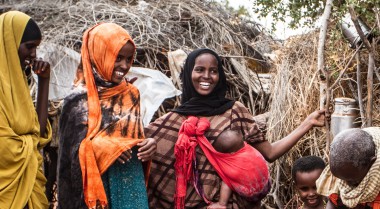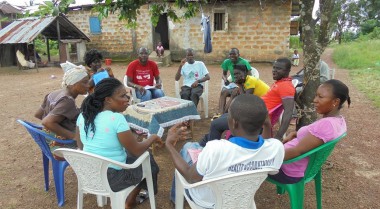
Persistent Challenges in Implementing United Nations Security Council Resolution 1325: CSPPS Representatives Reflections on the Women, Peace and Security Agenda
The adoption of the United Nations Security Council Resolution 1325 (UNSCR 1325) in October 2000, a result of joint efforts of many involved driven by the spirit of justice and equality in the context of peace and security, has been saluted by populations in fragile states, mostly those hosting many female victims of war atrocities and other form conflicts. The resolution was revolutionary in its sense that it did not only portray women as victims of war, but also emphasized the importance of women as crucial actors for sustainable peace. The resolution from 2000 does not stand on its own. In the past 17 years many other resolutions (1820, 1888, 1889, 1960, 2106, 2122 & 2242) were added to improve the so-called Women, Peace and Security (WPS) agenda.
As we approach the 17th anniversary of this Resolution 1325, a review of current state of implementation of this Resolution is essential especially in fragile contexts. On the African continent, particularly in the Great Lakes region, the UNSCR 1325 has led to remarkable changes in the management of state institutions. Several countries in the region have established constitutions that incorporate principle of joint management; man-woman, in state-owned institutions. With support of civil society, almost all states in the African continent have adopted National Action Plans on 1325 to safeguard the eighteen goals of the Resolution in state policies and programs. Unfortunately, the implementation of these plans is hampered. Women are less associated and/or involved in decision-making process, usually they are overlooked in peace talks and political negotiations. On the occasion of the 17th anniversary of Resolution 1325, the Civil Society Platform for Peacebuilding and Statebuilding (CSPPS) solicited contributions of its members in Guinea Bissau, the Democratic Republic of Congo, Burundi, and The Netherlands to take stock of current opportunities and obstacles in the advancement of 1325 agenda in their contexts. Following sections in this blog present perspectives collected from each context.
Read the full blog here.
By: Ude Faty, Voz di Paz, Focal Point of the CSPPS in Guinea Bissau; Irene Esambo, Executive Secretary of the Center for Justice Studies and UNSCR 1325 and Member of the CSPPS Country Team in the Democratic Republic of Congo; Pascasie Barampama, President of the Women and Peace Network and Focal Point of the CSPPS in Burundi and Anne Kwakkenbos, Policy advisor Gender, Security & Justice, Cordaid.


